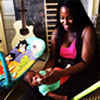Find a CBT Therapist
Search through our directory of local clinicians.
2016 Featured Articles Archive
CBT Reduces ADHD Effects…
 The New York Times’ Benedict Carey talks about several studies investigating CBT’s effects on ADHD symptom outcomes. He writes that those students who began treatment with CBT all had better outcomes, regardless of the types of treatment used later on. Further, he found that by using CBT as a treatment approach in the beginning, treatment costs were reduced annually by an average of $700, when factoring in direct and indirect costs.
The New York Times’ Benedict Carey talks about several studies investigating CBT’s effects on ADHD symptom outcomes. He writes that those students who began treatment with CBT all had better outcomes, regardless of the types of treatment used later on. Further, he found that by using CBT as a treatment approach in the beginning, treatment costs were reduced annually by an average of $700, when factoring in direct and indirect costs.
To see the article, click here
Get Some Sleep
 CBT for Insomnia (CBT-I) has been shown to be at least as good as, and sometimes better than, medication in fighting insomnia.
CBT for Insomnia (CBT-I) has been shown to be at least as good as, and sometimes better than, medication in fighting insomnia.
Read why, and how. Then sleep on it
Social Phobia
 Stefan Hofmann provides insights into Social Anxiety, its relative commonness, and techniques CBT therapists might use to help sufferers confront it effectively
Stefan Hofmann provides insights into Social Anxiety, its relative commonness, and techniques CBT therapists might use to help sufferers confront it effectively
For more information see
Depressed Millennials?
 Depression rates are holding steady and suicide rates are decreasing, so why do folks think Millennials are more prone to both?
Depression rates are holding steady and suicide rates are decreasing, so why do folks think Millennials are more prone to both?
Mitch Prinstein and others join NPR in exploring this
Manage Fatigue
 Patients with multiple sclerosis suffering from fatigue can benefit from an online CBT-based fatigue management program. Other benefits from the program include improvements in anxiety and subjective cognitive impairment.
Patients with multiple sclerosis suffering from fatigue can benefit from an online CBT-based fatigue management program. Other benefits from the program include improvements in anxiety and subjective cognitive impairment.
For more on this, please see
Money for Clinical Research in CBT
 Dr. Richard Friedman, a well-known psychiatrist in New York, recently published an Op-Ed article in the New York Times, which made a strong case for increasing federal funding for research on psychotherapeutic interventions.
Dr. Richard Friedman, a well-known psychiatrist in New York, recently published an Op-Ed article in the New York Times, which made a strong case for increasing federal funding for research on psychotherapeutic interventions.
Reducing Anxiety Over the Internet
 An internet-based Cognitive Behavioral Therapy (ICBT), structured to simulate face-to-face treatment, may be a suitable option for adolescents with anxiety disorders
An internet-based Cognitive Behavioral Therapy (ICBT), structured to simulate face-to-face treatment, may be a suitable option for adolescents with anxiety disorders
For more information on Anxiety, see
To learn more about what questions you might ask the therapist, see
Examining Emotion in Procrastination
 An article in the Wall Street Journal discusses the role of emotion in procrastination. Impulsivity and poor negative emotion tolerance may be just as important as poor time management strategies in facilitating procrastination. Exposing procrastinators to stressful feelings or thoughts is linked to decreased procrastination
An article in the Wall Street Journal discusses the role of emotion in procrastination. Impulsivity and poor negative emotion tolerance may be just as important as poor time management strategies in facilitating procrastination. Exposing procrastinators to stressful feelings or thoughts is linked to decreased procrastination
BT Helps Insomnia
 Cognitive Behavior Therapy shown to reduce insomnia symptoms and sleep disturbance in individuals with co-existing psychiatric symptoms: here
Cognitive Behavior Therapy shown to reduce insomnia symptoms and sleep disturbance in individuals with co-existing psychiatric symptoms: here
Online Therapy
 Huffington Post discusses how online therapy may bring down barriers to therapy and help bring therapy to those who otherwise couldn’t, or wouldn’t, use it.
Huffington Post discusses how online therapy may bring down barriers to therapy and help bring therapy to those who otherwise couldn’t, or wouldn’t, use it.
An online CBT program may help those clients who normally wouldn’t receive treatment due to financial constraints or those with limited access to therapists:
Fresh Start
 Many of us look at college as a new adventure, and as a way to leave the past behind, but, not surprisingly, who we are tends to follow us.
Many of us look at college as a new adventure, and as a way to leave the past behind, but, not surprisingly, who we are tends to follow us.
Join Anne Marie Albano as she gives us ideas for helping in smooth transitions
Being Black and Anxious
 A recent Longest Shortest Time podcast from NPR featured a young mother discussing her anxiety in relation to her pregnancy, her young infant, and more. In addition, she worries about what she calls being the “model minority.” And like all great pieces on anxiety, ABCT is listed as one of the resources. Photo from NPR
A recent Longest Shortest Time podcast from NPR featured a young mother discussing her anxiety in relation to her pregnancy, her young infant, and more. In addition, she worries about what she calls being the “model minority.” And like all great pieces on anxiety, ABCT is listed as one of the resources. Photo from NPR
For more on anxiety, see and for those looking for a CBT therapist to help with anxiety or other issues, see
After The Crash
 The recent Metro-North crash reminds us the trauma that passengers, family, and even onlookers, such as those waiting in their cars at the crossing, experience in the aftermath of a horrendous tragedy. For some, the trauma is now; others may experience difficulties later, suffering from the delayed symptoms common in PTSD sufferers. No, it’s not confined to soldiers at war; not even confined to those hurt. For information on PTSD and Trauma, please see our Fact Sheets. For those who might want to talk to a CBT therapist, please see our Find a CBT Therapist directory.
The recent Metro-North crash reminds us the trauma that passengers, family, and even onlookers, such as those waiting in their cars at the crossing, experience in the aftermath of a horrendous tragedy. For some, the trauma is now; others may experience difficulties later, suffering from the delayed symptoms common in PTSD sufferers. No, it’s not confined to soldiers at war; not even confined to those hurt. For information on PTSD and Trauma, please see our Fact Sheets. For those who might want to talk to a CBT therapist, please see our Find a CBT Therapist directory.
The Secret History Of Thoughts
 A new NPR program, Invisibilia, explores some of how thoughts work, and how they become maladaptive. Alix and Lulu then look at how CBT and some third wave treatments approach maladaptive thinking, centering on one person’s fear he was going to kill his wife.
A new NPR program, Invisibilia, explores some of how thoughts work, and how they become maladaptive. Alix and Lulu then look at how CBT and some third wave treatments approach maladaptive thinking, centering on one person’s fear he was going to kill his wife.
To hear the podcast, listen
Healthy eating or disordered eating?
 Eating healthy is great, but when the quality and composition of meals becomes a time consuming preoccupation interfering with daily functioning of causing malnutrition, we may be dealing with orthorexia, a type of eating disorder, fortunately, this disorder appear to respond well to CBT approaches that are typically used for eating disorders and obsessive compulsive disorder. Link:
Eating healthy is great, but when the quality and composition of meals becomes a time consuming preoccupation interfering with daily functioning of causing malnutrition, we may be dealing with orthorexia, a type of eating disorder, fortunately, this disorder appear to respond well to CBT approaches that are typically used for eating disorders and obsessive compulsive disorder. Link:
For more information on eating disorders, see our fact sheet
Exposure therapy helps heal prolonged grief
 Prolonged grief disorder (PGD) is a potentially disabling condition that affects approximately 10% of those who lose a loved one.
Prolonged grief disorder (PGD) is a potentially disabling condition that affects approximately 10% of those who lose a loved one.
New research (link ) shows that cognitive behavior therapy (CBT) that includes exposure therapy to promote emotional processing of memories of the death is superior to CBT alone in reducing PGD severity.
For more on bereavement and grief, see
What Is Your OCD IQ?
 How much do you really know about obsessive-compulsive disorder (OCD)? OCD is often misconstrued or made light of in the popular media. In truth, it is a chronic condition that affects 2-3% of the U.S. population and is associated with marked functional impairment and quality of life deficits. Fortunately, treatments such as cognitive behavior therapy and certain medications have been found effective.
How much do you really know about obsessive-compulsive disorder (OCD)? OCD is often misconstrued or made light of in the popular media. In truth, it is a chronic condition that affects 2-3% of the U.S. population and is associated with marked functional impairment and quality of life deficits. Fortunately, treatments such as cognitive behavior therapy and certain medications have been found effective.
Look at coverage in the New York Times, [link ], or, for more information on OCD, see
Internet-CBT equal to face-to-face group CBT for chronic tinnitus
 Chronic tinnitus (a condition that causes ringing or buzzing in the ears) can be debilitating.
Chronic tinnitus (a condition that causes ringing or buzzing in the ears) can be debilitating.
A new study [link ] compared fact-to-face group CBT with Internet-delivered CBT and found that both groups showed equally large improvements in measures of tinnitus severity and interference relative to waitlist control.
CBT Trumps Medications for Social Anxiety Disorder
 A huge meta-analysis (link ) of 101 studies with more than 13,000 social anxiety disorder participants found that CBT had larger effect sizes than medications and other talk therapies. The authors� conclusion? CBT “should be regarded as the best intervention for initial treatment”.
A huge meta-analysis (link ) of 101 studies with more than 13,000 social anxiety disorder participants found that CBT had larger effect sizes than medications and other talk therapies. The authors� conclusion? CBT “should be regarded as the best intervention for initial treatment”.
For more information on shyness and social anxiety, see
Most People Have Unwanted Thoughts, International Study Finds
 What if I hit someone with my car? What if I contracted HIV? What if I left the iron on and my house burns down? If you have ever had thoughts like this, you�re not alone. A new study [link ] finds that these kinds of unwanted, intrusive thoughts are actually quite common, even among people who don�t have obsessive-compulsive disorder (OCD).
What if I hit someone with my car? What if I contracted HIV? What if I left the iron on and my house burns down? If you have ever had thoughts like this, you�re not alone. A new study [link ] finds that these kinds of unwanted, intrusive thoughts are actually quite common, even among people who don�t have obsessive-compulsive disorder (OCD).
For more on OCD, see
CBT greatly reduced anxiety in grade school children
 Childhood anxiety is very common and has been found to increase the risk of mental health problems in adulthood. A new study [link ] found that CBT greatly reduced anxiety levels in schoolchildren ages nine to 10 years old. This finding is important because strategies that can effectively reduce anxiety early on have potential for decreasing the huge social and economic burden associated with anxiety disorders over the lifespan.
Childhood anxiety is very common and has been found to increase the risk of mental health problems in adulthood. A new study [link ] found that CBT greatly reduced anxiety levels in schoolchildren ages nine to 10 years old. This finding is important because strategies that can effectively reduce anxiety early on have potential for decreasing the huge social and economic burden associated with anxiety disorders over the lifespan.
Learn more about childhood phobias, social anxiety, and school refusal: [link 1] and [link 2 ]
CBT for conversion disorder reduces psychogenic nonepileptic seizures
 Psychogenic nonepileptic seizures are a conversion disorder that affect up to 400,000 people in the US. A new clinical trial [link ] found that CBT, with or without sertraline, led to a reduction in seizures and an improvement in comorbid symptoms, such as depression and anxiety, in patients with psychogenic nonepileptic seizures.
Psychogenic nonepileptic seizures are a conversion disorder that affect up to 400,000 people in the US. A new clinical trial [link ] found that CBT, with or without sertraline, led to a reduction in seizures and an improvement in comorbid symptoms, such as depression and anxiety, in patients with psychogenic nonepileptic seizures.
Online Psychotherapy Gains Fans and Critiques
 The demand for online psychotherapy is growing rapidly. Research on the efficacy of delivering treatment online and guidelines to protect patients and therapists are racing to catch up. NRP�s morning edition covers the story.
The demand for online psychotherapy is growing rapidly. Research on the efficacy of delivering treatment online and guidelines to protect patients and therapists are racing to catch up. NRP�s morning edition covers the story.
Kids with OCD benefit from family-based exposure therapy
 A new study found that family-based exposure and response prevention (EX/RP) was effective in reducing symptoms of obsessive-compulsive disorders (OCD)and improving daily functioning in young children between the ages of five and eight with OCD. The results indicate that with appropriate parental support, even younger children can benefit from EX/RP:
A new study found that family-based exposure and response prevention (EX/RP) was effective in reducing symptoms of obsessive-compulsive disorders (OCD)and improving daily functioning in young children between the ages of five and eight with OCD. The results indicate that with appropriate parental support, even younger children can benefit from EX/RP:
see
Bullying
 The scars of childhood bullying are still evident 40 years later
The scars of childhood bullying are still evident 40 years laterNew research ![]() shows that the effects of childhood bullying are still evident nearly 40 years later. Individuals who were bullied during childhood had poorer physical and psychological health and were at an increased risk of depression, anxiety disorders, and suicidal thoughts.
shows that the effects of childhood bullying are still evident nearly 40 years later. Individuals who were bullied during childhood had poorer physical and psychological health and were at an increased risk of depression, anxiety disorders, and suicidal thoughts.
Therapy Apps
 Need Therapy? There’s an app for that.
Need Therapy? There’s an app for that.
A quick look at the latest research from the intersection of CBT and mobile technology.
Diabetes Help
 CBT can improve physical and psychological well-being
CBT can improve physical and psychological well-being
A new study found that CBT for depression and diabetes management effectively improved blood sugar control and relieved depression symptoms in patients with poorly-controlled type 2 diabetes.
Link to press release
For more information on depression, please see
Youth Anxiety
 CBT Provides Lasting Benefits to Anxious Kids and Teens
CBT Provides Lasting Benefits to Anxious Kids and Teens
A recent study found that CBT (with and without a medication for anxiety) was an effective treatment for youth with moderate to severe anxiety disorders. Moreover, the benefits of treatment were maintained 6 months after treatment with the help of monthly booster sessions.
To read more, see ; and for more information on childhood phobias and social anxiety,
see this and this one
Body Dysmorphia
 CBT Benefits Patients with Body Dysmorphic Disorder
CBT Benefits Patients with Body Dysmorphic Disorder
Body Dysmorphic Disorder (BDD) is an under-recognized body-image disorder that affects an estimated 1.7 percent to 2.4 percent of the population. In an recent randomized-controlled trial, researchers found that CBT significantly improved patients’ BDD symptoms and level of disability, and was associated with high levels of patient satisfaction.
To read more, see
For additional help, we have many self-help books, including this one
Help For Chronic Pain
 New Study Finds Mindfulness Effective For Chronic Pain
New Study Finds Mindfulness Effective For Chronic Pain
Prescription opioid medications are a leading treatment for chronic pain, which affects nearly one-third of Americans. Misuse of prescription painkillers can lead to addiction or overdose. Now, new research published in the Journal of Consulting and Clinical Psychology shows that Mindfulness-Oriented Recovery Enhancement, or MORE, can significantly reduce pain and opioid misuse in chronic pain patients.
To read more about the study, see
to find out more about Chronic Pain, see
CBT helps cancer patients get a good nights rest
 Cancer patients often struggle with sleep problems. A new study at University of Pennsylvania Perelman School of Medicine found that mindfulness-based stress reduction and CBT for insomnia can help patients get a much-needed good nights rest
Cancer patients often struggle with sleep problems. A new study at University of Pennsylvania Perelman School of Medicine found that mindfulness-based stress reduction and CBT for insomnia can help patients get a much-needed good nights rest
for more information, see our fact sheet on insomnia
OCD patients show greater improvement with CBT than with medications
“OCD patients on serotonin reuptake inhibitors (SRIs) should be offered EX/RP before being offered an addition of antipsychotic medications, given the greater efficacy and safety of EX/RP. We hope that these data will impact clinical practice and help more patients with OCD achieve wellness.” Lead Author, Dr. Blair Simpson
To read more about OCD see
To find a therapist to help you confront your OCD see
Seminal ADHD study is re-evaluated by its authors
 ADHD, the second most prevalent diagnosis in children, has long been treated primarily through drugs, a treatment that was fueled, in part by the study, Multimodal Treatment Study of Children With A.D.H.D. Now, according to the New York Times, the studys authors are suggesting perhaps CBTs value was understated. Says one of the studys authors, I hope it didnt do irreparable damage. The people who pay the price in the end is the kids. That�s the biggest tragedy in all of this. To read the full Times article, see
ADHD, the second most prevalent diagnosis in children, has long been treated primarily through drugs, a treatment that was fueled, in part by the study, Multimodal Treatment Study of Children With A.D.H.D. Now, according to the New York Times, the studys authors are suggesting perhaps CBTs value was understated. Says one of the studys authors, I hope it didnt do irreparable damage. The people who pay the price in the end is the kids. That�s the biggest tragedy in all of this. To read the full Times article, see
and to read more about ADHD, see
 “Cognitive-Behavioral Therapy: Proven Effectiveness”
“Cognitive-Behavioral Therapy: Proven Effectiveness”
by Robert L. Leahy, Ph.D. in Anxiety Files November 23, 2011
A debate continues to rage on the efficacy of CBT and psychoanalytic psychiatry. The most recent salvo can be found on Bob Leah’s Psychology Today blog in which he responded to David Allen, M.D,’s blog regarding the limits of CBT. The direct link to Bob’s post is at http://www.psychologytoday.com/blog/anxiety-files/201111/cognitive-behavioral-therapy-proven-effectiveness or you may want to visit the ABCT facebook page to see a discussion of the discussion.
 “The Forgotten Patients” Forbes.com September 3, 2010
“The Forgotten Patients” Forbes.com September 3, 2010
Roughly 35,000 Americans commit suicide each year; another 1.1 million make attempts; while 8 million have suicidal thoughts. But Forbes Magazine details a treatment approach, DBT, developed by one of our members, Marsha Linehan, that has changed and saved lives. Read more …
 Long-time member Edna Foa is named TIME Magazine Time 100� for her work in treating PTSD
Long-time member Edna Foa is named TIME Magazine Time 100� for her work in treating PTSD
“Bipolar: Tips for Life“ WWW.WEBMED.COM
“Prevent Depression in Teens With Cognitive Behavioral Therapy“ US News.com June 4, 2009.
 Depression Leads to Misperceptions of Criticism from Spouses
Depression Leads to Misperceptions of Criticism from Spouses
People who are feeling depressed or who are having marital problems often complain that their spouses are critical of them. Read more …
 One Session Exposure Therapy May Work for Reducing Anxiety
One Session Exposure Therapy May Work for Reducing Anxiety
One-Session Treatment (OST) is a form of exposure therapy for the treatment of fears and phobias. Read more …
 CBT plus Zoloft is “gold standard” treatment for child anxiety
CBT plus Zoloft is “gold standard” treatment for child anxiety
In the combined treatment group, 81 percent of children were much improved by three months, compared with 60 percent in the therapy-only group, 55 percent in the sertraline-only group, and 24 percent in the placebo group. Read more …
“More and More, Favored Psychotherapy Lets Bygones Be Bygones.“ The New York Times. February 14, 2006.
“Dump the Couch! And Ditch the Zoloft: A new therapy revolution is here.“ Forbes. April 9, 2007.
“A Change of Mind: Thanks to managed care, evidence-based medical practice, and changing ideas about behavior, Cognitive Therapy is the talking cure of the moment.“ The Washington Post. September 3, 2002.
“Press Release: NICE guidelines to improve the treatment and care of people with depression and anxiety.“ National Institute for Clinical Excellence. December 6, 2004.
“Dr. Oz Goes to Obsessive-Compulsive Disorder Camp.“ The  Oprah Winfrey Show. May 21, 2008.
Oprah Winfrey Show. May 21, 2008.
“A Clutter Too Deep for Mere Bins and Shelves.“ The New York Times. January 1, 2008.
“Clutter and Hoarding.“ Voices in the Family, WHYY-National Public Radio. March 3, 2008.
“Virtual reality program could help veterans cope with PTSD.“ The Hartford Courant. December 4, 2007.
“Worried in America: Facing Fears.“ ABC News. April 3, 2008.
Dr. Robert Leahy, director of the American Institute for Cognitive Therapy, and other CBT therapists appear on this special news program. People suffering from severe, even crippling anxiety are taught how to cope with their fears in a dramatically short amount of time.
“The Worry Cure’ Book.“ The Early Show, CBS News. December 6, 2005.
“Taking Anxiety Down a Notch.“ The New York Times. October 30, 2005.
“Cold Feet.“ Weekend Today Show, NBC.
“Teen Faces Down Anxiety Disorder.“ Good Morning America, ABC News. May 20, 2006.
“Lotus Therapy.“ The New York Times. May 27, 2008.
“Ease anxieties with a capsule?“ The New England Cable Network. August 13, 2008.

 NPR’s All Things Considered had a program about how people who consider suicide also consider the means, and one means is guns.
NPR’s All Things Considered had a program about how people who consider suicide also consider the means, and one means is guns. The New York Times’
The New York Times’  A new meta-analysis, [
A new meta-analysis, [ Results from a new study [
Results from a new study [ A new study [
A new study [ ABCT member Dr. Abramowitz discusses religious OCD, or scrupulosity, with CNN [
ABCT member Dr. Abramowitz discusses religious OCD, or scrupulosity, with CNN [ 60 Minutes gets an inside look at how two specific types of CBT (prolonged exposure and cognitive processing therapy) can help veterans suffering from PTSD.
60 Minutes gets an inside look at how two specific types of CBT (prolonged exposure and cognitive processing therapy) can help veterans suffering from PTSD.